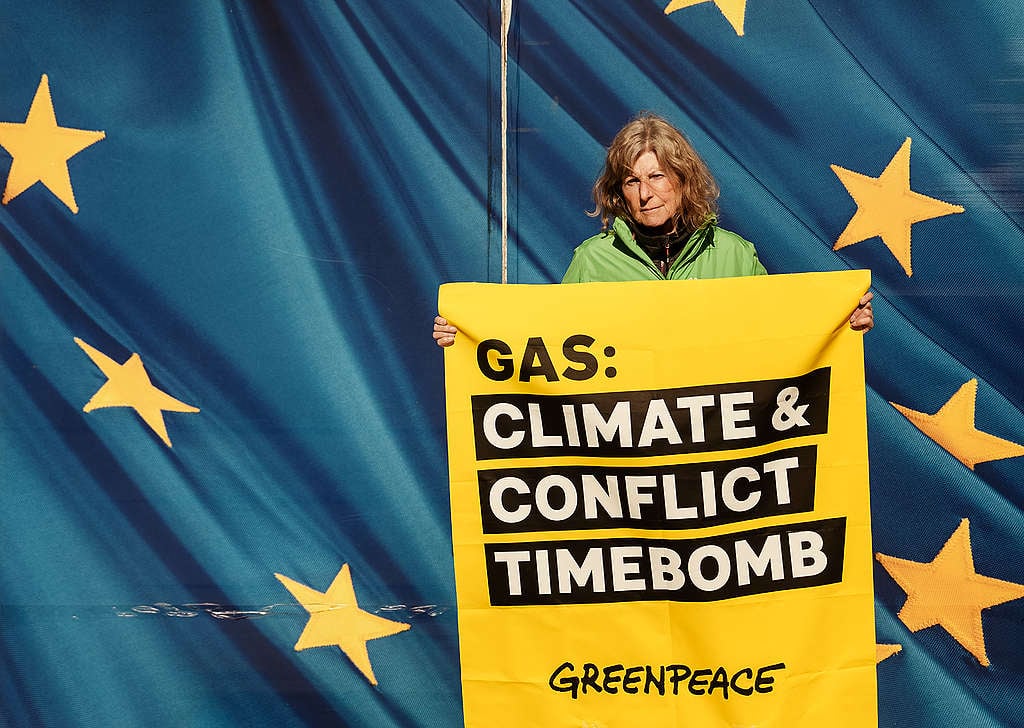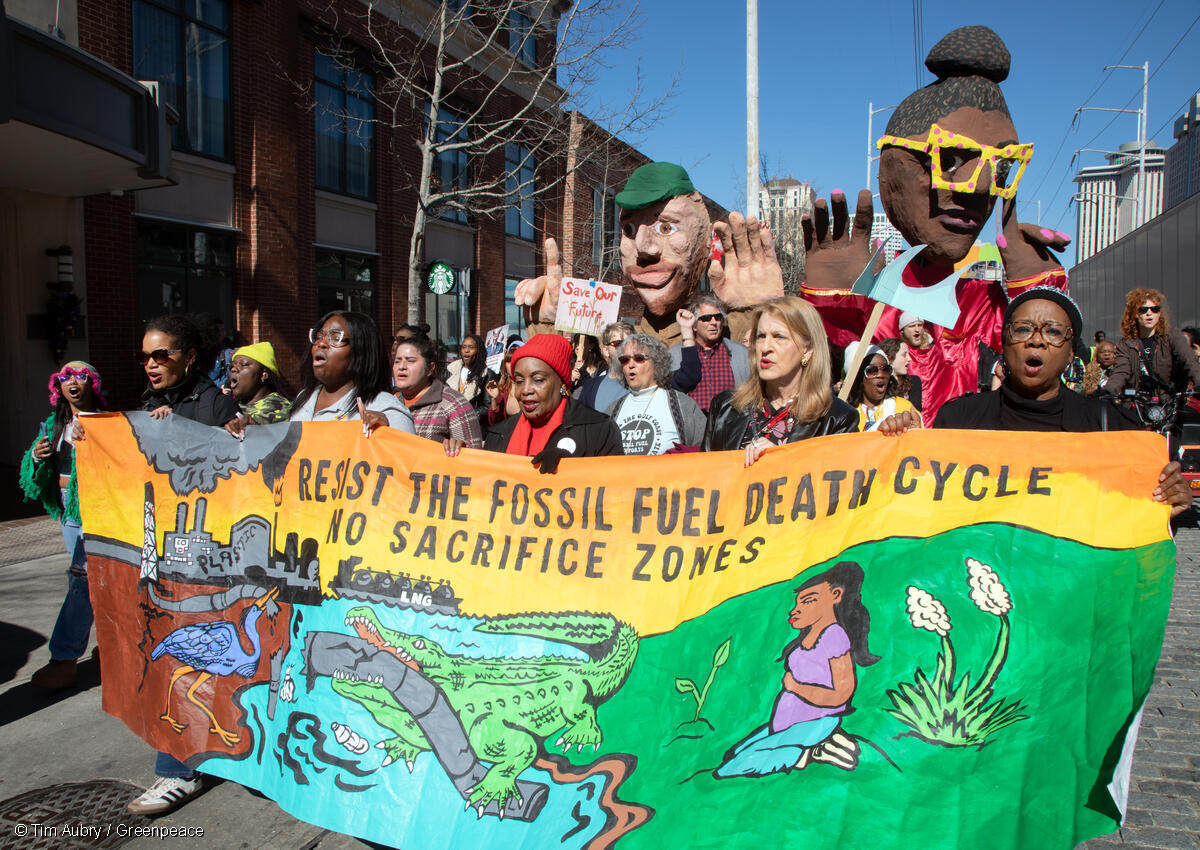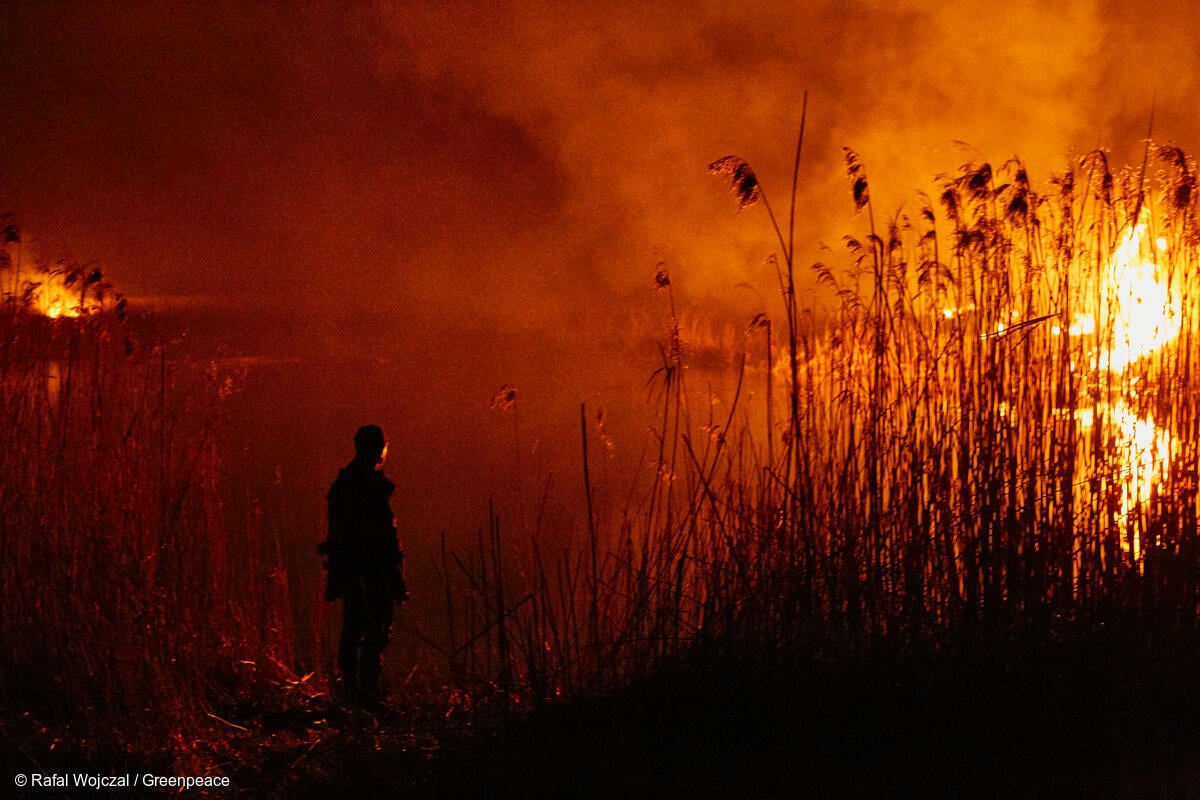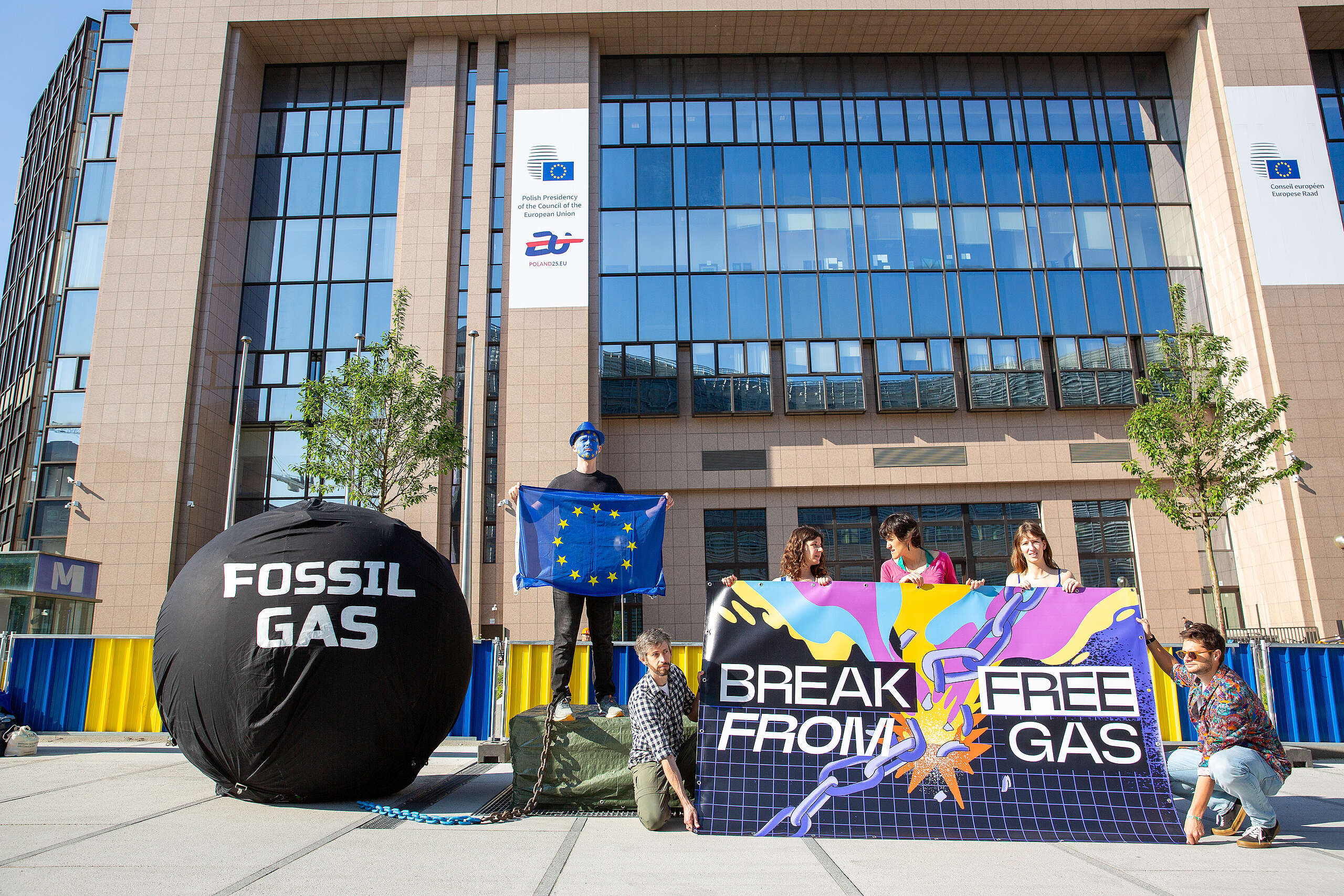New report exposes geopolitical & climate threat of planned EU-backed EastMed gas pipeline
***Photos and video of the protest will be uploaded here
Brussels, 1 March 2023 – A group of 20 Greenpeace Belgium activists have placed giant stickers depicting a gas pipeline on the headquarters of the European Commission in Brussels to highlight the threat to peace from EU-backed fossil fuels.
A new report released today by Greenpeace Italy warns in particular about how the EU-backed EastMed gas pipeline risks sparking conflict and would severely accelerate the climate crisis. The planned pipeline is in line for EU funding and a fast-track permit, as the European Commission considers including it on the EU’s “Projects of Common Interest” list for energy infrastructure.

The pipeline, which would not come online before 2028, is planned to connect Israeli gas fields with Greece, branching off to Italy and passing through contested waters between Greece, Turkey and Cyprus.
Greenpeace EU climate & energy campaigner Lorelei Limousin said: “The EU’s continued backing of fossil fuels is not only a climate disaster, it’s a genuine threat to peace. The EastMed pipeline is a perfect example of an explosive project in a highly militarised and contested region. It could reignite a dormant conflict just so oil and gas companies can squeeze out profits for a couple more decades, drawing investments away from renewables and energy savings. The combined threat of the climate crisis and armed conflict are a clear warning that fossil fuel infrastructure is no route to energy security.”
The activists covered the area around the main entrance of the Commission’s Berlaymont building with images of gas pipelines rigged with a timed explosive and the messages “gas fuels war” and “gas: climate & conflict timebomb” in several languages. A larger pipeline was placed on glass panels near the entrance.
The report, Timebomb – the geopolitical and climate risk of the EastMed pipeline, warns that:
By passing through contested maritime borders between Greece, Turkey and the divided island of Cyprus, the pipeline would increase the risk of armed conflict in what is already a highly militarised region.
The pipeline could stir up the unresolved conflict between the Republic of Cyprus and the Turkish Republic of North Cyprus over control of the island and its resources.
The pipeline could also become an obvious military target, as demonstrated by the 2022 attacks on the NordStream pipeline between Russia and Germany.
If it is built, the EastMed pipeline could be responsible for greenhouse gas emissions equivalent to 27 million tonnes of CO2 every year, taking into account energy consumption, transport and leakage. It would use up 11.5% of the EU’s remaining carbon budget – between 2028 and 2050 – to limit global heating to 1.5°C above pre-industrial levels.
Greenpeace is calling on the European Commission to put climate and peace first and keep the EastMed pipeline off the next list of “Projects of Common Interest”, and to carry out a conflict risk assessment for any EU-backed cross-border fossil fuel infrastructure projects.
After collecting feedback from energy regulators and EU governments, the Commission is expected to submit its final list of Projects of Common Interest in November. Governments and the European Parliament will then have two months to endorse the entire list or reject it as a whole, but cannot make any changes to the list itself.
– ends –
***Photos and video of the protest will be uploaded here
Contacts:
Lorelei Limousin – Greenpeace EU climate & energy campaigner: +32 (0)477 79 04 15 [email protected]
Greenpeace EU press desk: +32 (0)2 274 1911, [email protected]
For breaking news and comment on EU affairs: www.twitter.com/GreenpeaceEU
Greenpeace is an independent global campaigning network that acts to change attitudes and behaviour, to protect and conserve the environment and to promote peace. We do not accept donations from governments, the EU, businesses or political parties. Greenpeace has over three million supporters, and 26 independent national and regional organisations with offices in more than 55 countries.
EU Transparency Register: 9832909575-41



